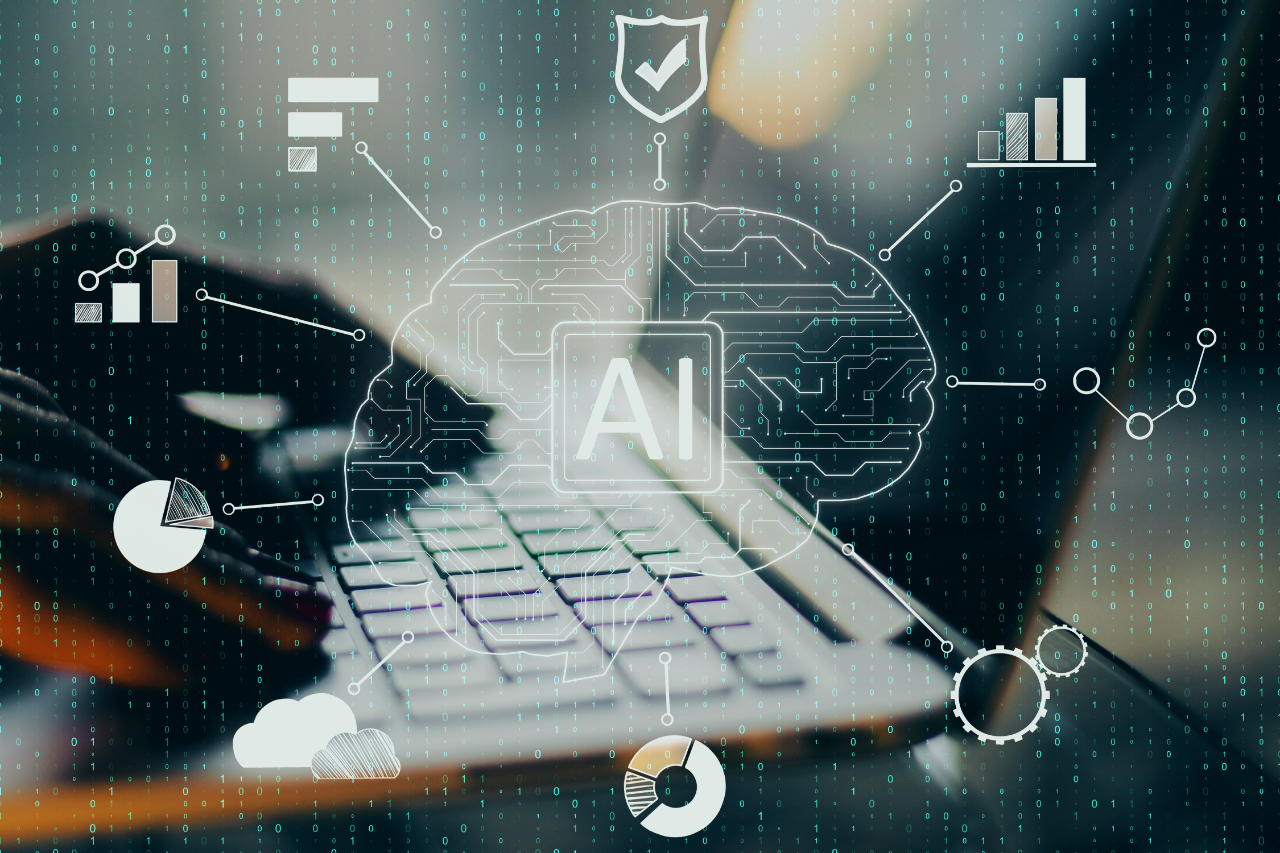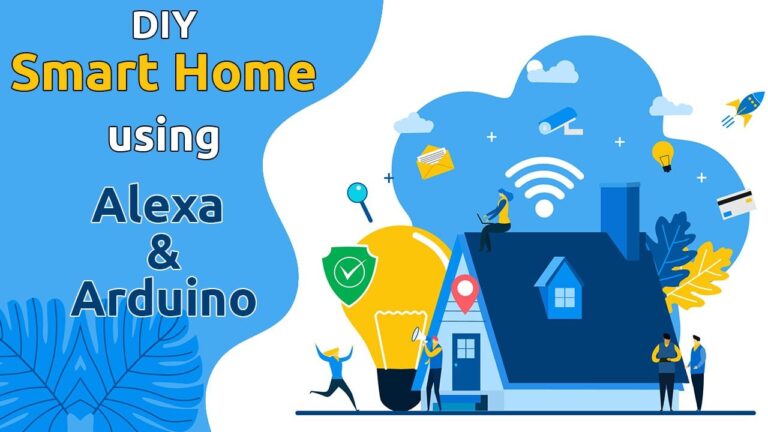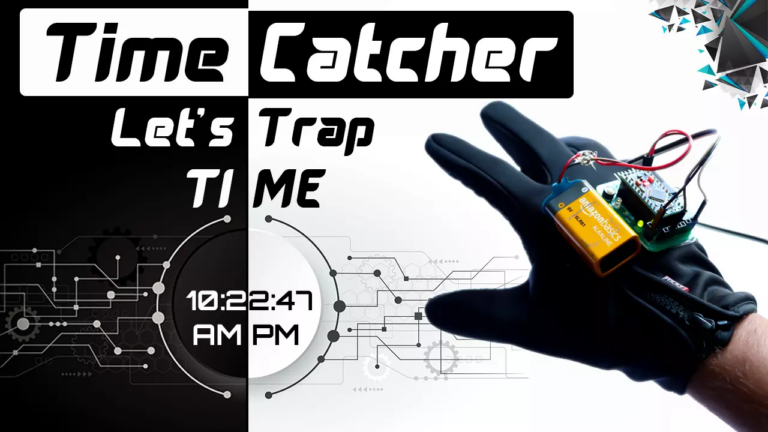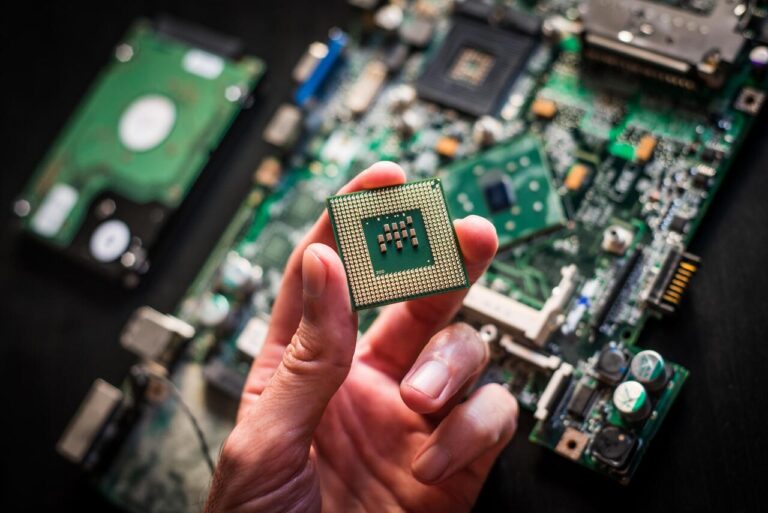The Future of Coding: How Generative AI and AI Code Assistants Are Transforming Software Development!
Artificial Intelligence (AI) has dramatically reshaped the technological landscape, driving advancements across various industries. AI, by mimicking human intelligence, can tackle complex tasks such as visual perception, speech recognition, decision-making, and language translation. Among its many forms, generative AI is particularly notable for its ability to create new data. Unlike traditional AI, which focuses on analyzing and processing existing data, generative AI can produce fresh content in multiple formats, including text, code, images, audio, and video.
In software development, AI code assistants are becoming increasingly crucial. These sophisticated tools utilize generative AI techniques, especially natural language processing and machine learning, to support developers in their coding activities. AI code assistants like GitHub Copilot and Codeium provide smart code suggestions, automate repetitive tasks, and enhance overall coding efficiency, making them essential in contemporary software development.
The significance and relevance of these technologies in today’s software development landscape are immense. They not only boost productivity and minimize errors but also make coding more accessible to beginners and provide robust support for experienced developers. As generative AI and AI code assistants continue to advance, they are set to further revolutionize software development, unlocking unprecedented levels of innovation and efficiency.
What is a Generative AI Code Assistant?
Generative AI stands out from other types of machine learning and artificial intelligence due to its ability to create new data. Unlike traditional AI, which focuses on analyzing and processing existing data, generative AI can produce new content across various media, including text, code, images, audio, and video.
In software development, generative AI code assistants utilize advanced AI techniques, particularly natural language processing and machine learning, to support developers in their tasks. These tools offer intelligent code suggestions, automate repetitive processes, and enhance overall coding efficiency, thereby transforming the development experience and making it more efficient and accessible for developers at all skill levels.
Features of Generative AI Code Assistants
Intelligent Code Suggestions and Autocompletion : These tools provide real-time code suggestions as developers type, similar to autocomplete features in text editors. They can predict the next lines of code based on context, significantly speeding up the coding process and reducing the likelihood of syntax errors.
Error Detection and Debugging : AI code assistants can detect errors and potential bugs in the code, offering suggestions for fixes. This helps developers identify issues early in the development process, ensuring more robust and reliable code.
Code Generation from Text Prompts : Developers can input natural language descriptions of what they want to achieve, and the AI can generate the corresponding code snippets. This is particularly useful for standard functions and repetitive tasks, saving time and effort.
Learning and Adaptation : These tools learn from the developer’s coding style and preferences over time, providing more personalized and relevant suggestions. This feature improves adaptability and generates more efficient coding experience.
Documentation and Learning Resources : AI code assistants can suggest relevant documentation and learning resources based on the code being written. This feature helps developers understand complex code and concepts, facilitating continuous learning.
Examples of Generative AI Code Assistants
GitHub Copilot : Powered by OpenAI’s Codex, GitHub Copilot is one of the most popular AI code assistants. It integrates seamlessly with Visual Studio Code and provides intelligent code suggestions, autocompletion, and even entire code blocks based on natural language prompts. Copilot supports various programming languages and has become a valuable tool for developers seeking to enhance productivity and reduce coding errors.
Codeium : Codeium is another AI code assistant that leverages generative AI techniques to provide smart code suggestions, error detection, and automated code generation. It is designed to work with multiple integrated development environments (IDEs) and supports a wide range of programming languages. Codeium’s focus on enhancing developer efficiency makes it a strong contender in the AI code assistant market.
Tabnine : Tabnine uses machine learning to provide real-time code completion and suggestions. It supports various programming languages and IDEs, offering both cloud-based and local models to suit different security and performance needs. Tabnine learns from the developer’s coding patterns and improves its suggestions over time, making it a powerful tool for boosting productivity and code quality.
How Generative AI Powers Code Assistants?
Explanation of How Generative AI Techniques Are Utilized
Generative AI code assistants leverage advanced AI techniques, primarily natural language processing (NLP) and machine learning (ML), to assist developers in their coding tasks. NLP allows these tools to understand and generate human language, enabling them to comprehend natural language descriptions of coding tasks and translate them into executable code. Machine learning, on the other hand, allows these systems to learn from vast datasets of code, recognizing patterns and predicting the next lines of code or suggesting improvements.
Overview of Underlying Technologies
At the core of many generative AI code assistants is OpenAI’s Codex, a powerful AI model trained on a diverse range of coding languages and natural language data. Codex is the engine behind GitHub Copilot, one of the most popular AI code assistants. This model has been trained on billions of lines of code from public repositories, allowing it to understand and generate code across multiple programming languages. The underlying technology involves transformers, a type of neural network architecture that excels at understanding context and generating coherent sequences of text, whether in natural language or code.
How These Technologies Improve Coding Efficiency and Reduce Errors?
Code Suggestions and Autocompletion: Generative AI code assistants provide real-time code suggestions and autocompletion, which significantly speed up the coding process. By predicting what the developer is likely to write next, these tools reduce the amount of manual typing and minimize syntax errors.
Error Detection and Debugging: These AI tools can identify potential errors and suggest corrections. By leveraging their understanding of common coding patterns and practices, they help developers spot mistakes early, reducing the time spent on debugging and ensuring more robust code.
Automated Code Generation: With the ability to generate entire blocks of code from simple text prompts, generative AI assists developers in quickly implementing standard functions and repetitive tasks. This not only saves time but also helps maintain consistency and adherence to best practices.
Learning and Adaptation: As developers use these tools, the AI learns from their coding style and preferences, providing increasingly personalized and relevant suggestions. This continuous learning process enhances the overall efficiency and effectiveness of the development workflow.
AI Code Assistants
Artificial Intelligence (AI) is the development of machines that can produce human intelligence. These systems are capable of doing tasks that require human cognitive functions, such as visual perception, speech recognition, decision-making, and language translation. AI helps machines to think and act like humans to simulate human thought processes and actions.
AI Code Assistants are advanced software tools that leverage artificial intelligence, particularly machine learning and natural language processing, to assist developers in writing, debugging, and optimizing code. These assistants can understand and generate code, provide real-time suggestions, automate repetitive tasks, and enhance overall coding efficiency.
Key Features of AI Code Assistants
Code Suggestions and Autocompletion : AI code assistants provide real-time code suggestions and autocompletion to enhance the efficiency of coding. As developers type, these tools predict the next lines of code, helping to complete functions, methods, or entire code blocks. This not only speeds up the coding process but also reduces the likelihood of syntax errors. By understanding the context of the code, these assistants offer relevant suggestions, making coding faster and more accurate.
Error Detection and Debugging : One of the most significant features of AI code assistants is their ability to detect errors and assist with debugging. These tools analyze the code as it’s being written, identifying potential bugs and suggesting fixes. This proactive approach helps developers catch errors early in the development process, which can save considerable time and effort in debugging later stages. By leveraging large datasets of code and best practices, AI code assistants improve code reliability and quality.
Code Generation from Text Prompts : AI code assistants can generate code from natural language descriptions or text prompts. Developers can describe what they want the code to accomplish, and the AI translates this description into executable code. This feature is particularly useful for implementing standard functions or automating repetitive tasks, thereby increasing productivity and ensuring consistency in the codebase.
Learning and Adaptation to Individual Coding Styles : These tools adapt to individual developers’ coding styles over time. By learning from the code written by the user, AI code assistants provide increasingly personalized suggestions and completions that align with the developer’s preferences and habits. This continuous learning process enhances the tool’s effectiveness and makes it a more intuitive part of the developer’s workflow.
Popular AI Code Assistants
GitHub Copilot : GitHub Copilot, powered by OpenAI’s Codex, is one of the most well-known AI code assistants. It integrates with Visual Studio Code and offers features such as code suggestions, autocompletion, and code generation from text prompts. Copilot supports multiple programming languages and has been praised for its ability to enhance developer productivity and code quality.
Codeium : Codeium is another powerful AI code assistant that utilizes machine learning to provide intelligent code suggestions, error detection, and automated code generation. It is compatible with various integrated development environments (IDEs) and supports a wide range of programming languages. Codeium’s focus on efficiency and developer support makes it a valuable tool in the coding community.
Benefits of Using AI Code Assistants
Increased Productivity and Efficiency
AI code assistants significantly enhance productivity by automating many aspects of the coding process. These tools provide real-time code suggestions and autocompletion, allowing developers to write code faster and with greater accuracy. By predicting the next lines of code or completing entire code blocks, AI code assistants reduce the amount of manual typing and help developers maintain their focus on more complex aspects of software development. This boost in efficiency can lead to faster project completion and the ability to handle larger workloads.
Reduction in Coding Errors and Bugs
One of the primary advantages of AI code assistants is their ability to detect and correct errors as they occur. These tools continuously analyze the code being written, identifying potential bugs and suggesting fixes before the code is compiled. This proactive error detection helps developers avoid common pitfalls and ensures higher code quality. By catching errors early in the development process, AI code assistants can save significant time and resources that would otherwise be spent on debugging and testing.
Time-Saving Through Automation of Repetitive Tasks
AI code assistants excel at automating repetitive and mundane coding tasks. For instance, they can generate boilerplate code, handle routine tasks like formatting, and provide templates for standard functions. This automation frees up developers to focus on more innovative and complex aspects of their projects. Additionally, by reducing the time spent on repetitive tasks, developers can achieve a better work-life balance and allocate more time to learning and improving their skills.
Challenges and Limitations of Generative AI and AI Code Assistants
Potential Issues with Over-Reliance on AI
While AI code assistants can significantly boost productivity and efficiency, there’s a risk of developers becoming overly reliant on these tools. Over-reliance can lead to a decrease in critical thinking and problem-solving skills, as developers may start to depend too heavily on AI-generated suggestions instead of understanding the underlying code. This dependence can result in a lack of deep coding knowledge and reduce the ability to debug or create complex solutions independently.
Limitations in Understanding Context or Complex Problem-Solving
AI code assistants, despite their advanced capabilities, can struggle with understanding the full context of a project or the intricacies of complex problem-solving. These tools are excellent at handling repetitive and well-defined tasks, but they may fall short when it comes to interpreting nuanced requirements or making judgment calls that require a deeper understanding of the project’s goals. This limitation can result in suggestions that are technically correct but contextually inappropriate or suboptimal for the specific use case.
Ethical Considerations and Biases in AI-Generated Code
The use of AI in code generation brings up important ethical considerations. AI models, including those used in code assistants, are trained on vast amounts of data, which can include biased or flawed examples. This can lead to the propagation of biases in AI-generated code, affecting fairness and inclusivity in software applications. Additionally, there are concerns about the transparency and accountability of AI-generated code, as it can be challenging to trace back the origin of specific code suggestions or to understand the reasoning behind them.
PCBWay
If you are an electronics enthusiast engaged in creating your own projects, PCBWay is an excellent choice for your needs. PCBWay is a company that provides printed circuit board (PCB) prototyping, manufacturing, and assembly services. They offer a range of PCB-related services, including PCB fabrication, PCB assembly, PCB design, and PCB stencil. PCBWay has an online platform that allows customers to upload their design files, get instant quotes, and place orders for PCB prototyping and manufacturing.
They also have a team of engineers who can provide design reviews and technical support to customers.In addition to PCB services, PCBWay also offers a range of other services, such as 3D printing, CNC milling, and laser cutting. PCBWay is known for its affordable prices, quick turnaround times, and high-quality PCB products. They have served customers from a variety of industries, including aerospace, medical, automotive, and consumer electronics.

PCBWay Project Community is an online community platform for robotics enthusiasts, hobbyists, and professionals to connect, share knowledge, and showcase their electronics projects. The platform is managed by PCBWay, a company that provides PCB prototyping, manufacturing, and assembly services.
In addition to the online community platform, PCBWay Project Community also offers various resources and tools to help members with their electronics projects. These include tutorials, design files, and PCB layouts. Overall, the PCBWay Project Community is a great resource for anyone interested in electronics, providing a platform for learning, sharing, and collaboration in the field.
PCBWay 10th Anniversary Badge Design Contest
As PCBWay approaches its 10th anniversary, they are excited to announce the PCBWay 10th Badge Design Contest. This event invites all designers, makers, and dreamers to showcase their talent and passion for design.
| Click Here to Participate – PCBWay 10th Anniversary Badge Design Contest |

Theme of the Contest
The contest theme is “A Decade of Innovation with PCBWay.” Participants are invited to create designs that both celebrate PCBWay’s achievements over the past 10 years and also envisioning future advancements.
Design Requirements
1. Your badge must feature both the “PCBWay” logo and the number “10.”
| Click Here to Get the Logo – PCBWay Logo Vector |
2. Promoting the use of PCB, PCB+SMT/THT, and PCB+3D printing techniques to create projects that are not only functional and innovative but also visually striking.
3. Please make sure to include your design concept in the submission, addressing the following points: What is PCBWay’s image in your mind? What do you hope others will understand from your badge? What significance does your badge hold? Clearly conveying these elements will be crucial for the success of your final review.
Submission of Designs
Please share your designs in the comments section of the link given below or send them to us via email at sponsor@pcbway.com. If you prefer to share your designs on social media, be sure to use the hashtag #PCBWay10BadgeContest.
| Click Here to Share Your Comments – Share Designs Email – sponsor@pcbway.com Social Media – #PCBWay10BadgeContest |
Prize
The winner will receive $1,000 in cash, while two runner-ups will each receive a $200 PCBWay coupon.
PCBWay will offer a free prototyping service and a $50 coupon for badges that meet their design requirements. Selected designs will be showcased on their channels and may be chosen as the official badge for PCBWay’s 10th anniversary.
Timeline
- Contest Opens – March 12, 2024
- Submission Deadline – May 31, 2024
- Winner Announcement – June 15, 2024
Conclusion
Generative AI and AI code assistants are transforming software development by boosting productivity, efficiency, and code quality. Leveraging technologies like natural language processing and machine learning, these tools offer intelligent code suggestions, automate repetitive tasks, and assist with debugging. This makes coding more accessible for beginners and supports experienced developers in tackling complex projects.
Developers should embrace these technologies to stay competitive and focus on creative problem-solving. AI code assistants enhance the development process, leading to faster project completion and higher quality code. As software development continues to evolve, generative AI and AI code assistants will play an increasingly integral role, driving future innovations and further streamlining coding tasks.







